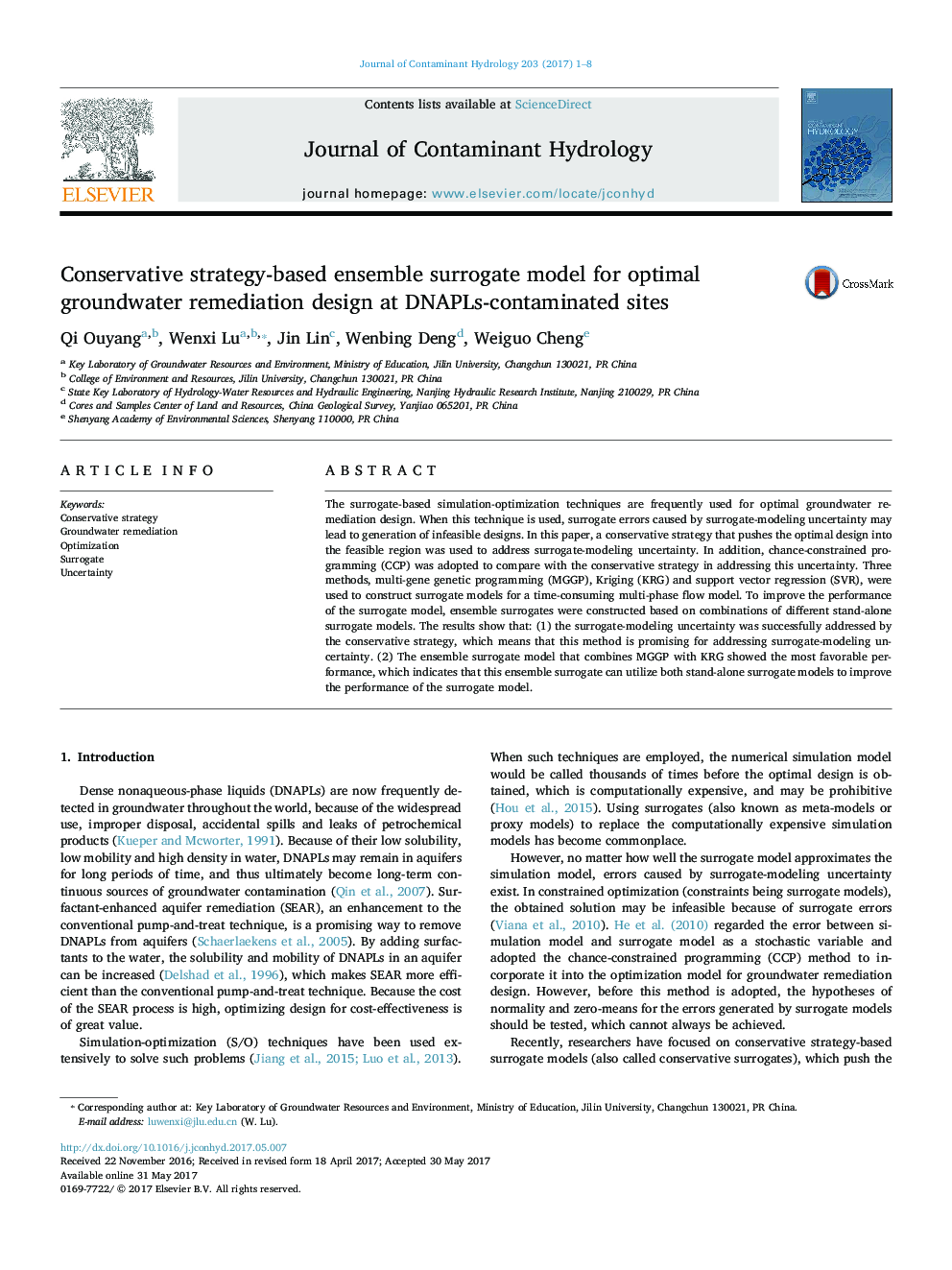| Article ID | Journal | Published Year | Pages | File Type |
|---|---|---|---|---|
| 5765850 | Journal of Contaminant Hydrology | 2017 | 8 Pages |
â¢Conservative strategy is a promising alternative for addressing surrogate-modeling uncertainties.â¢The ensemble surrogate model that combined MGGP with KRG has the most favorable performance.â¢Combining different surrogate models into ensembles cannot ensure improved performance.
The surrogate-based simulation-optimization techniques are frequently used for optimal groundwater remediation design. When this technique is used, surrogate errors caused by surrogate-modeling uncertainty may lead to generation of infeasible designs. In this paper, a conservative strategy that pushes the optimal design into the feasible region was used to address surrogate-modeling uncertainty. In addition, chance-constrained programming (CCP) was adopted to compare with the conservative strategy in addressing this uncertainty. Three methods, multi-gene genetic programming (MGGP), Kriging (KRG) and support vector regression (SVR), were used to construct surrogate models for a time-consuming multi-phase flow model. To improve the performance of the surrogate model, ensemble surrogates were constructed based on combinations of different stand-alone surrogate models. The results show that: (1) the surrogate-modeling uncertainty was successfully addressed by the conservative strategy, which means that this method is promising for addressing surrogate-modeling uncertainty. (2) The ensemble surrogate model that combines MGGP with KRG showed the most favorable performance, which indicates that this ensemble surrogate can utilize both stand-alone surrogate models to improve the performance of the surrogate model.
